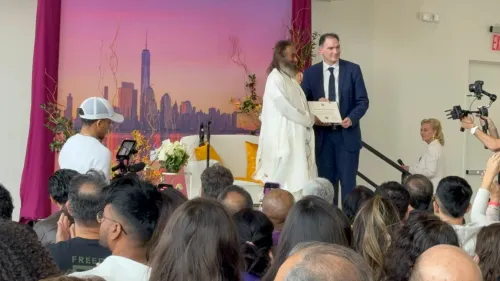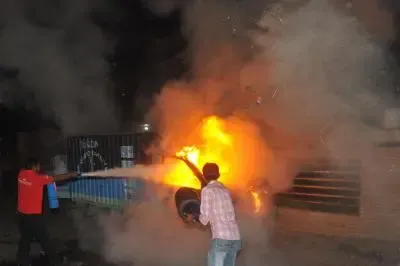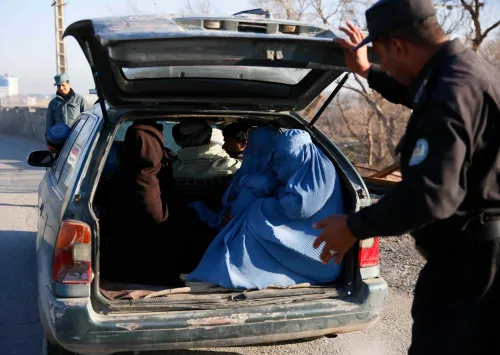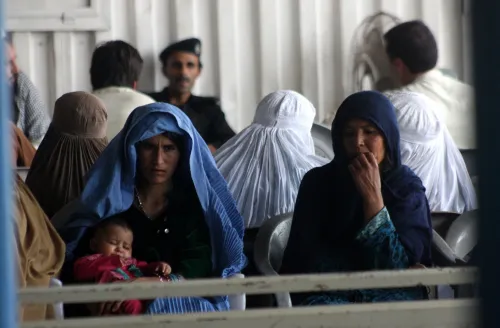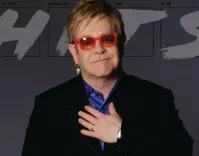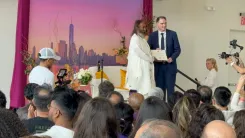What Did Om Birla and Iran's Speaker Discuss at the 11th BRICS Parliamentary Forum?
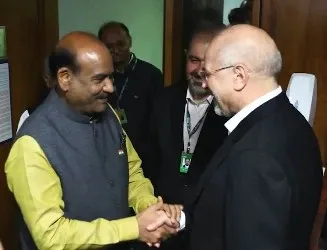
Synopsis
Key Takeaways
- Strengthening India-Iran relations through the Chabahar Port.
- Emphasis on counter-terrorism efforts and global cooperation.
- India's vision for AI that integrates ancient values with modern advancements.
- BRICS serves as a major player in the global economic landscape.
- Collaboration among BRICS nations is essential for economic development.
Brasilia, June 6 (NationPress) Lok Sabha Speaker Om Birla engaged in a bilateral dialogue with Dr Mohammad Bagher Ghalibaf, the Speaker of the Majles of Iran, during the 11th BRICS Parliamentary Forum in Brazil’s capital. Their conversation centered on the historic and friendly ties between both nations, with a significant emphasis on enhancing connectivity via the Chabahar Port.
The talks aimed to deepen India-Iran relations, particularly through the strategic significance of the Chabahar Port, which serves as a crucial link for connectivity between South Asia, Central Asia, and beyond.
Speaker Birla took to social media platform X to share insights from his meeting.
"During the 11th BRICS Parliamentary Forum in Brasília, I had a productive interaction with H.E. Dr. Mohammad Bagher Ghalibaf, Speaker of the Majles of Iran. We discussed our ancient and cordial relations, with a particular focus on strengthening connectivity through the Chabahar Port, enhancing parliamentary cooperation, and tackling regional and global challenges. I emphasized the need for united global efforts to combat terrorism and acknowledged Iran’s assistance in these endeavors. Furthermore, I reaffirmed India’s unwavering commitment to address terrorism through legal frameworks, advanced technology, and improved collaboration among relevant agencies. I also invited Dr. Ghalibaf to partake in the BRICS Parliamentary Forum to be hosted by India in 2026," Om Birla shared.
Birla further reiterated India's dedication to inclusive technological growth and presented the nation’s vision for Artificial Intelligence (AI), describing it as a unique blend of ancient civilizational values and contemporary technological progress.
At a session titled “Inter-Parliamentary Cooperation for Responsible and Inclusive Artificial Intelligence,” Birla articulated India’s perspective on AI as an integration of historical values and modern advancements.
"At the Session on 'Inter-Parliamentary Cooperation for Responsible and Inclusive Artificial Intelligence', I highlighted India’s vision for AI, which embodies a unique confluence of our ancient civilizational values and modern technological innovation. It reflects our belief that AI must be human-centric, serving the principles of justice, equality, and human rights. I shared insights on how India is utilizing AI across critical sectors like healthcare, agriculture, climate action, education, and governance, ensuring it benefits every citizen, especially the most vulnerable," he wrote on X.
Birla also participated in a working session titled "BRICS Parliamentary Action in Search of New Paths for Economic Development," reiterating India’s call for a fair, rules-based global trading system that caters to the needs of the Global South. He stressed the importance of enhancing trade, investment, and financial collaboration among BRICS nations.
“Today, the BRICS group has emerged as a formidable force in the global economic landscape, representing nearly 45 percent of the world’s population and contributing 40 percent to global GDP based on purchasing power parity,” Birla noted, commending Brazil’s Parliament for effectively hosting the forum.
The BRICS coalition comprises 11 nations: Brazil, Russia, India, China, South Africa, Egypt, the United Arab Emirates, Ethiopia, Iran, Indonesia, and Saudi Arabia.
Earlier this year, additional partner countries including Belarus, Bolivia, Kazakhstan, Cuba, Malaysia, Nigeria, Thailand, Uganda, and Uzbekistan were inducted into the BRICS framework.


